Postpartum Starter Kit
- kelselizabethjones
- Jun 26, 2025
- 6 min read
I'm titling this a starter kit instead of a postpartum checklist because I’m convinced that for every mother—and every postpartum—this list will change based on your needs and experience.
Sometimes it’s hard to begin anything without a little boost or a gentle nudge in the right direction. My prayer is that this starter kit will help simplify and ease your birth and postpartum supply preparations. You’ve got this, mama!
Physical Recovery Essentials
Mesh undies or high-waisted cotton briefs
The hospital will most likely supply you with postpartum pads, and I find they pair wonderfully with mesh undies that you can just throw away after use (in case of any leaks or spills).
Unscented maternity pads or adult diapers
I like to stock up on maternity pads (they’re often used for around four weeks, until bleeding slows enough for a smaller pad). In those early days—especially with multiple littles—I found adult diapers gave me peace of mind about leaks or spills. I usually order just one packet to keep on standby.
The hospital might supply you with one of these, too, but I like to keep a couple on hand—one for each bathroom in a postpartum caddy for easy access.
I cannot recommend sitz baths enough. Your physician may recommend holding off on hot water baths until stitches or wounds heal, so always follow their advice first. That said, sitz baths helped relieve inflammation, itching, and pesky hemorrhoids for me. Relief may not be immediate, but every soak is a gentle step in the right direction. Choose a fragrance-free magnesium salt—your baby is incredibly sensitive to scent, and you’ll want to avoid a strong lavender smell clinging to your skin.
Water filter for your bath water
This might feel like too much, but I love the idea of using purified water for recovery—and for bathing a newborn’s fresh, delicate skin.
Witch hazel pads or cooling liners
These are so soothing if you're dealing with stitches or hemorrhoids. Store a pack or two in the fridge for ultimate cooling relief.
This one is my favorite because you don’t have to wipe it off before baby nurses—one less thing to worry about. It's all-natural and less greasy than other balms. Bonus: I use this balm for everything. Chapped lips? Dry elbows? Nipple balm. Definitely worth the investment.
Nursing Support
Comfort is key, especially in the early days when your body is still adjusting.
I loved having a manual pump on hand—it helps relieve engorgement without overstimulating supply.
Truly legendary. It doesn’t apply pressure to the breast, so it won’t affect your milk supply. It catches precious letdown for later use, and it’s so easy to use.
These are essential in the early days—or if, like me, you have heavy letdowns. I wore nursing pads for all 19 months of breastfeeding my firstborn!
Breast therapy ice pack / heat packs
These were a lifesaver for me, especially while my supply regulated.
Cold packs after nursing helped reduce inflammation and slow milk refill.
Warm packs before nursing helped with letdown and full emptying.
With my firstborn, I had so many breastfeeding hurdles—I worked with a lactation consultant, hospital staff, and even a physical therapist. It was a season, but I learned so much. I now carry that knowledge with me for future babies and to support friends on their journeys. No two experiences are the same. If you're feeling anxious, take a deep breath. Trust your body. A calm mind helps regulate your hormones… and a peaceful mama supports a peaceful bubba.
Sunflower Lecithin to thin out milk and help clear clogs
This is another tip I learned from lactation consultants. Sunflower lecithin helps break up clogged ducts (which I hope you never experience—but if you do, keep this tip in your back pocket).
Think of it like Drain-O for your milk ducts—it thins breastmilk so it flows freely to baby or the pump. I prefer the powder version so I can control portions. I usually add it to a smoothie or yogurt. It's mostly tasteless and starts working within 30 minutes. Honestly, sunflower lecithin kept me on my breastfeeding journey with my firstborn.
Medicinal Support (if needed - always ask your medical provider)
Pain relievers
To be honest, I’m not usually a fan of pain meds—but postpartum is different. Acetaminophen or ibuprofen can really support your recovery. Follow your provider’s advice and stick to the schedule as best you can.
Stool softener
Trust me on this one. It's a game-changer for those first few bathroom trips. I pack this in my hospital bag so I can take it under medical supervision (though I’ve never had any side effects). Your provider can recommend the best one for you.
I love using this on my feet before bed—it helps me relax. Bonus: you can also use it on baby’s feet once they're a bit older (we start around 8 weeks). It gently promotes rest and sleep. I still use it on my girls today.
Nourishment & Hydration
Your body loses a lot of fluids during labor and the early days of breastfeeding. I love having a clean, not-too-sweet electrolyte powder on hand to help replenish and rehydrate without needing to chug plain water all day. Bonus: it can help fight off that postpartum fatigue fog.
This is one of my nightly rituals during postpartum. Magnesium supports rest, reduces muscle tension, and even helps with digestion. Stir a little into warm water or tea before bed—it feels like a quiet exhale at the end of a long day.
Keep this within reach at all times. Whether you're nursing, bottle-feeding, or simply healing—hydration is everything. I like one with a straw and handle so I can sip easily, even one-handed while rocking a baby.
Yes, continue to take these!
This may seem small, but dry lips were one of the first things I noticed postpartum (thanks, hormones and hospital air). Having a lip balm nearby is such a simple way to care for yourself in those early, blurry days.
Protein-rich grab and go snacks Think: trail mix, nut butter packets, protein bars, or prepped hard-boiled eggs. When you're up at 2am feeding a baby, having something nourishing on hand can make the moment feel a little more manageable.
Home & Baby Flow
Diaper stations stocked with diapers, wipes, creams, onesies, swaddles and burp cloths.
Here are some diaper caddies that I love:
Cozy nursing/pumping station (pillow, burp cloths, snacks, water, remote or book)
Nursing pillow - I prefer MyBreastFriend over the Boppy because it clips and tightens behind you, so you can keep it in place.
Burp cloths - both of my babies had some reflux in their first week of lives, these muslin burp cloths really help collect the spit up and they're easy to wash.
Baby carrier or wrap (so helpful when you want to be hands-free). It's hard to know what your bubba will prefer; but here are a couple of my favorite options:
Ergo Baby Aerloom Carrier (my favorite)
Nightlight for late feeds and diaper changes Keep this next to your bed so you can tap it on and have just enough light to nurse your baby but not wake your partner.
Hatch Sound Machine I love this sound machine because you can control it from your phone. Bonus, it can double as a night light, but isn't as easy to turn on as the one listed above.
Kind Touches Just for You
Because you need to look after you too. I loved having a few cozy items to wrap myself up in postpartum. If they fit in the budget, I'd encourage you to think about what would help you feel relaxed and comfortable, and see if you can purchase one or two of those things. Here are some luxuries I have gotten during my postpartum seasons - special little touches that helped me cuddle into the slowness.
Bed duvet cover because your comfort is paramount.
Jersey sheet set (my breasts leak so much as night, I soaked through so many sheet sets).
Save or print this checklist, tuck it into your hospital bag, or share it with a fellow mama. The fourth trimester isn’t just about surviving — it’s about nesting, healing, and finding your new rhythm, one slow breath at a time. One sweet baby cuddle at a time.
Oh yes, I did make this into a downloadable checklist version.
Postpartum_Starter_Kit_Checklist.pdf
Download PDF • 3KB
.png)











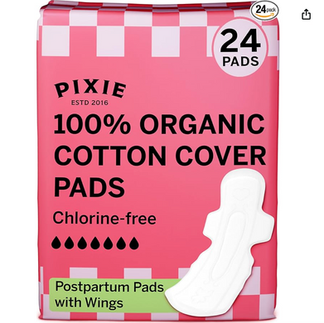















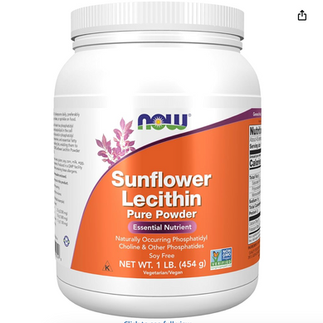















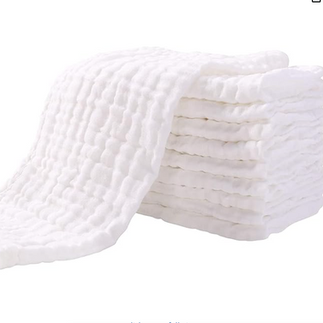

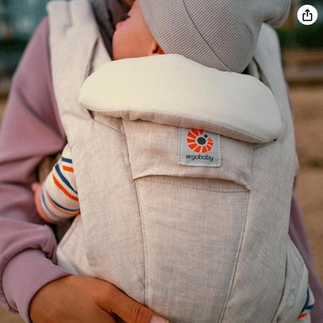











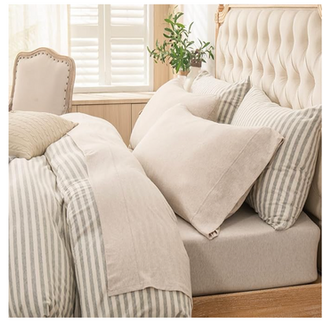







Comments